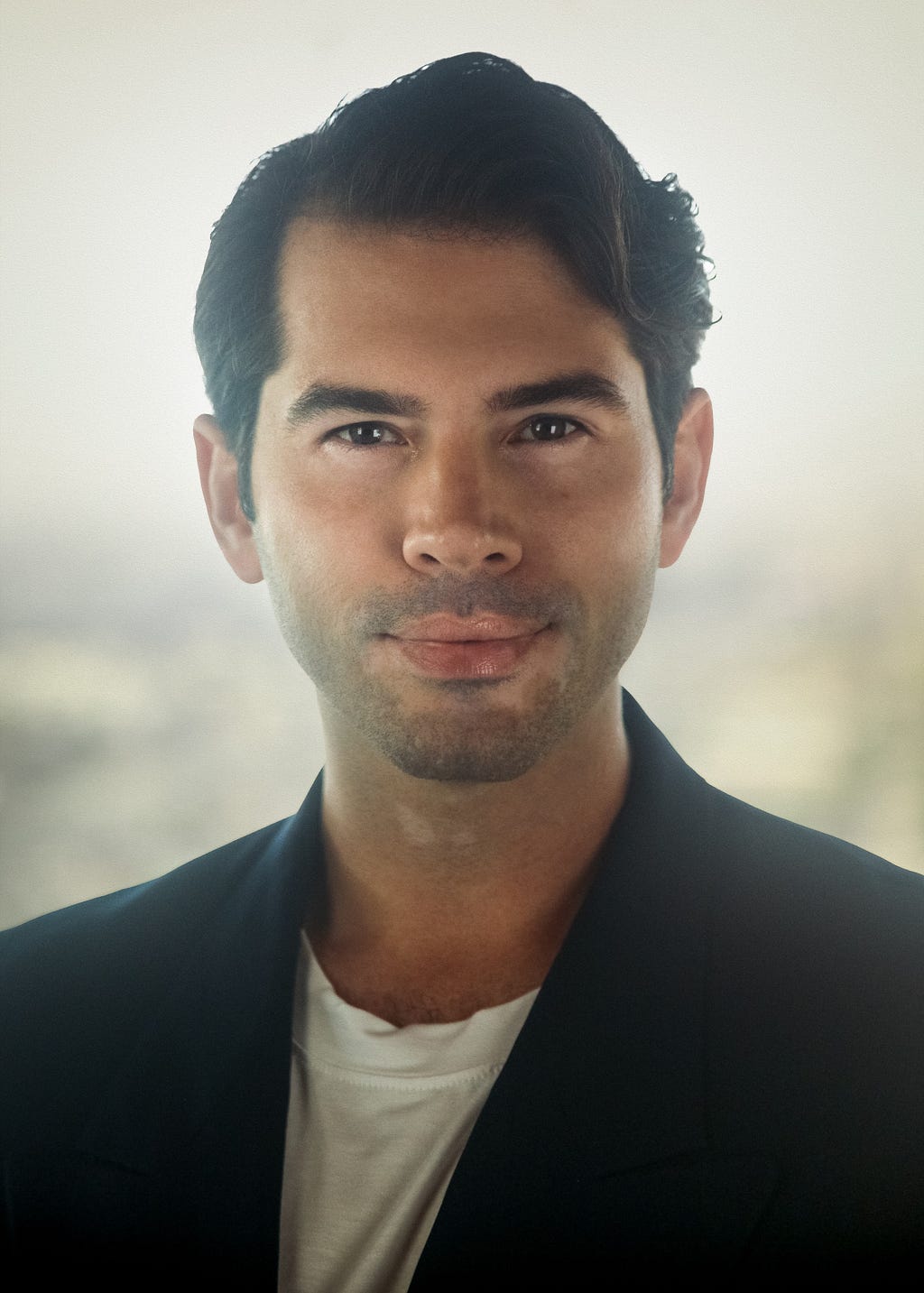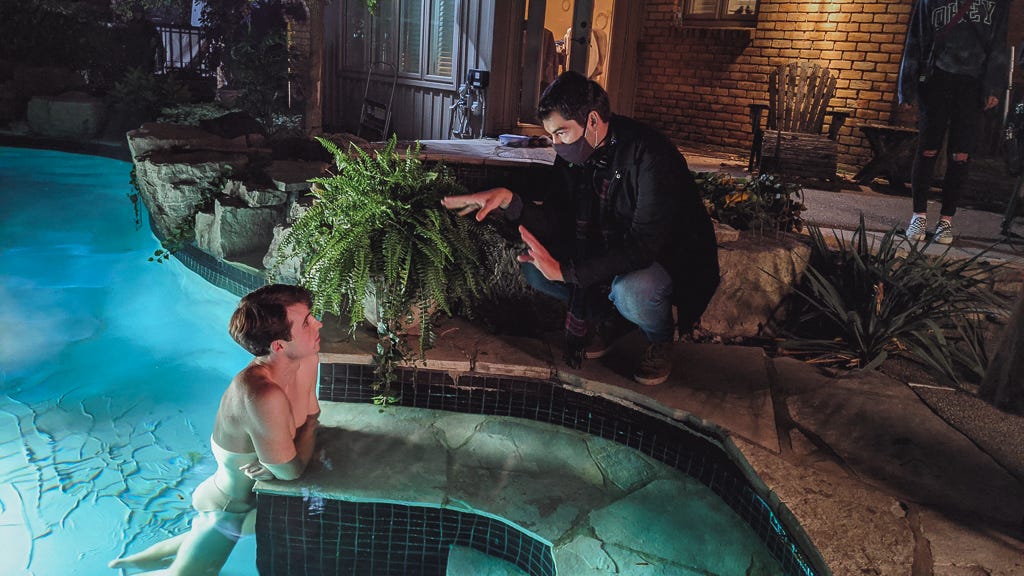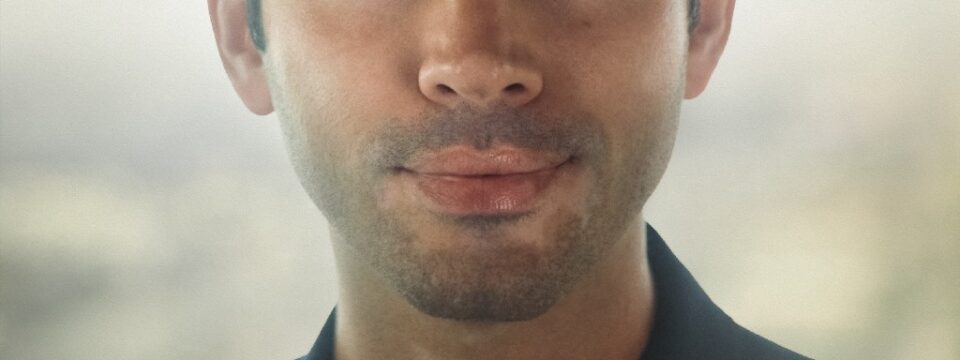Myles Yaksich of Harbour View Pictures: 5 Things I Wish Someone Told Me When I First Became A Filmmaker

Preserve the core of your story when obstacles arise, by being flexible and adaptable. Every production faces obstacles; budgets don’t stretch as far as you thought, there are scheduling conflicts, locations fall through, etc… but be flexible and quick to adapt. A lot of directing is problem solving on the day, and that’s usually when magic happens.
As a part of our series called “5 Things I Wish Someone Told Me When I First Became A Filmmaker”, I had the distinct pleasure of interviewing Myles Yaksich of Harbour View Pictures.
Through his short films, Myles Yaksich has created an appealing body of work that explores human experience on a global scale, with a particular focus on the complexity of self-discovery through interactions with strangers. Born in
Canada, he learned at a young age to travel and appreciate art and culture. After completing his degree in Finance and Economics, he pursued investment banking in Singapore and private equity in South East Asia, before relocating to Los Angeles to pursue filmmaking.
Living abroad for more than a decade has undoubtedly informed his work, whether it be the grieving workaholic who searches for answers in the elderly passenger beside him (“Poppies”), or the young academic who questions his sexuality after an intimate pen-pal relationship (“Erin”). His films tap into universal themes that expand the definitions of home, family and belonging.
Myles’ feature debut, “Albatross”, is a progression of this trajectory. His unique perspective and interest in stories about societal groups establishing roots, and the contrast between progress and tradition are laced throughout the narrative. Working with an intensely collaborative and supportive team has enabled Myles to exercise his strong creative control, ultimately making his debut film, “Albatross” so fascinating, fresh and powerful.
Myles’ films have screened around the world at over 40 festivals (including premieres at the Academy Qualifying LA Shorts Fest), receiving over 30 awards including Best Writer, Best Director and Best Film.
Thank you so much for joining us in this interview series! Our readers would love to get to know you a bit better. Can you tell us a bit of the ‘backstory’ of how you grew up?
Sure, I grew up in a relatively traditional household in Hamilton, ON. By nature, I was very curious and, thankfully my parents supported creative exploration (whether it be art lessons, dance and gymnastics, or theatre and film camps). That said, they were also adamant about academics, with a particular focus on mathematics and science. As a result, I spent a lot of time balancing the left and ride sides of my brain, not only drawing and painting, but also building and creating — playing with Lego and K’Nex or papier-mache.
Can you share a story with us about what brought you to this specific career path?
After studying business and economics in Canada, I went on to study and work in Singapore and other parts of South-East Asia for nearly a decade, with a particular focus on Mergers and Acquisitions and Private Equity. When it came time to take my career to the next level (by completing a master’s degree in the US), a work situation arose which inspired a self-evaluation, and ultimately pivoted my path toward filmmaking. Up until that point, I had always felt a certain degree of flexibility in my career — if I wanted to make a movie one day I could. But the thought of entrenching myself in an MBA felt heavy, it would become that much harder to change careers afterward. As a result, I moved from Asia to Los Angeles to pursue those creative childhood ambitions and make movies.
Can you share the funniest or most interesting story that occurred to you in the course of your filmmaking career?
Making a film is such a unique process, and each one has its own story. With ALBATROSS, the way in which the film even came about is entirely interesting; it’s a product of the Global Pandemic.
In 2019, my producing partner, Jennie Lew Tugend, and I were developing a short film we made in 2018, POPPIES, into a feature-length film. By Dec, we had a finished script and partial financing to start pre-production for the film, which took place between New York and Shanghai. However, as Covid-19 started ramping up in January and February 2020 we had to make an executive decision to put that project on hold (filming in Shanghai no longer seem feasible). Also, I had to make a “quick trip” back to Canada, leaving with just a backpack and carryon, assuming I’d be back in a couple of weeks.
Well, borders closed, and those weeks turned into months. Come April 2020, I decided to write a new film that could be produced in my hometown of Hamilton, ON. After speaking with a flagstone investor about pivoting strategy, I drafted out the script for ALBATROSS.
I think we were the second film to go into production in Canada. Consequently, the production process was defined by a series of rules, regulations and protocols… all without precedent; it truly felt like the Wild West. Determined to finish production before a second wave, we accelerated pre-production with local producer, James Mark and cast the film from Canada’s strong theatre community with Ashley Hallihan. We were able to get cinematographer, Dylan Chapgier, across the border, and built out the rest of our team with an immensely talented group of creatives from Hamilton and Toronto, including costume designer, Christopher Paunil.
One of the most memorable days on the set of ALBATROSS was filming the dancing sequence, which appears toward the mid-point of the film, when the story really heats up and the dominos start falling. This was one of the first times we had the main cast all together in one room, dancing around with Dylan and his camera. We truly had a blast that day!
Who are some of the most interesting people you have interacted with? What was that like? Do you have any stories?
Where to even start, the industry is so incredibly diverse, and the people are so compelling. Although we all come from such diverse backgrounds, we’re connected by our shared love of story. The more unique your individual experience, the more interesting your point of view and perspective. Whether it be on set, at festivals, or at social functions you never know who you’re going to meet or how you’ll impact each other’s journey. Being open to opportunity that aligns with your own goals is very important, we all wear multiple hats and just want to create.
None of us are able to achieve success without some help along the way. Is there a particular person who you are grateful towards who helped get you to where you are? Can you share a story about that?
The expression, “it takes a village to raise a child” rings true in filmmaking, and probably any creative or startup endeavor for that matter. There are many people who have contributed to the films I’ve made, and the success achieved thus far. My family’s support is undeniable.
When I first moved to Los Angeles, I was lucky enough to meet Jennie Lew Tugend while taking a producing class. Since then, she’s become my producing partner and friend. Her guidance and support have shaped my perspective about story and the industry, while also helping me focus my attention on certain projects. Also, while working in South-East Asia I worked with the experienced international businessman and financier, Reinout van Lennep, who has become an instrumental member of our team, shaping the way we’ve built the business.
Can you please give us your favorite “Life Lesson Quote”? Can you share how that was relevant to you in your life?
Reading the Great Gatsby in elementary school heavily influenced my outlook, and the quote that immediately comes to mind is from a passage that appears on page 1, “whenever you feel like criticizing anyone… just remember that all the people in this world haven’t had the advantages that you’ve had.” This quote is slightly different than how I remember it, in my mind and over time I must’ve substituted the word “advantages” for “experiences.” Regardless, the idea that we all come from different backgrounds and have different experiences that shape us is incredibly important — not just in our outward expressions, but also in how we hear others. Living abroad for more than a decade has also underscored this principal — experience shapes perspective and the way we go about achieving our goals.
I am very interested in diversity in the entertainment industry. Can you share three reasons with our readers about why you think it’s important to have diversity represented in film and television? How can that potentially affect our culture?
Representing diversity in film and television is important because the world we live in is diverse. There’s a wide range of human experience that can and should be explored in storytelling. With the advent of streaming channels and lower costs of production, many of these stories are gaining screen-time and finding an audience, no matter how niche the market. This is very exciting!
We all experience life in different ways, and this is where representation is very important. Diversity behind the camera ensures that representation feels authentic, while also reducing the reinforcement of false stereotypes.
That said, supporting diversity also means supporting the storytellers that share their unique visions or POV. There are multiple forms of diversity (not just race, sexuality or gender, but also religious, socio-economic, political, etc.) and not every story can, will, or should represent every facet of human experience. It’s important to understand that not every story is going to resonate with every individual or member of that community, and that doesn’t make it bad or invalid.
What are some of the most interesting or exciting projects you are working on now?
ALBATROSS has just hit the transactional market and I’m proud to say its available on Apple TV, Amazon, Youtube Movies, Spectrum and a multitude of other transactional platforms in the US and Canada. Looking forward, I’m confident the film will find a more permanent home and find an international audience under the guidance of our Sales Agent, Todd Slater.
I’m also very proud to share that I’m in development on my next feature length film, THE BARRACUDA ALCHEMIST, which questions the definition of self in a world where everyone craves a sense of belonging. The character driven dramatic thriller follows a young artist navigating a city that’s equal parts grunge and glamour, while walking a tight rope in the face of temptation, teetering between naivety and arrogance.
Furthermore, I’ve been working closely with Kevin Kreider from Netflix’s BLING EMPIRE on a rom-com titled CHASING TIDES: An egotistical actor plagued with a bad reputation must date a do-gooder to improve his image and land a dream role. When he discovers she has an agenda of her own, will he use his acting chops to maintain the charade?

Which aspect of your work makes you most proud? Can you explain or give a story?
Bringing the film to life is truly a collaborative process, which reflects the artistry and passion of the entire team. Following the story from concept, through development, production, the festival circuit and on, until the film finds an audience and has its own life — is incredibly rewarding. With ALBATROSS, the first time I saw the film on the big screen was during our final sound mix session at the Sony Lot in Los Angeles. To say that was a memorable experience would be an understatement. It was UNREAL. Also, hearing the audiences reaction to the film during the festival run has been very exciting — you can feel the tension when Dr. Lloyd’s performing his therapy sessions, you can hear the laughter and gasps. It’s great.
Ok super. Here is the main question of our interview. What are your “5 things I wish someone told me when I first started” and why. Please share a story or example for each.
- Tell the story you want, not the story you think people need or want to hear. When getting notes it’s important to filter between subjective and objective feedback. For example, is that note a personal preference or a structural flaw in your story?
- Cast experienced actors that most closely capture your character’s essence. Try to cast as authentically to the character as possible, and look for an actor’s ability to not only take notes, but implement them quickly.
- Realizing your vision for the story is more important than technical quality. Whether you capture performances on 8k, 4k, or 2k won’t matter if the story and actors aren’t captivating. Although better technical quality gives you more flexibility in editorial, I would prioritize performance, shoot days and location quality if facing budget constraints.
- Trust your team (when earned) to elevate your vision. It’s easy to micromanage, but building a team that understands, can execute and elevate your vision, is important!
- Preserve the core of your story when obstacles arise, by being flexible and adaptable. Every production faces obstacles; budgets don’t stretch as far as you thought, there are scheduling conflicts, locations fall through, etc… but be flexible and quick to adapt. A lot of directing is problem solving on the day, and that’s usually when magic happens.
When you create a film, which stakeholders have the greatest impact on the artistic and cinematic choices you make? Is it the viewers, the critics, the financiers, or your own personal artistic vision? Can you share a story with us or give an example about what you mean?
There’s an expression that a film is made three times; while it’s written, while it’s filmed and while it’s edited — and each process has a different set of stakeholders that impact its development.
During the writing stage my imagination and any known production components are really my only constraint. So, with ALBATROSS for example, I wrote a story that focused on one location with a contained cast to combat Covid-Compliant production issues. Outside of that, sky’s the limit for how the story unfolds.
Once we got into production, budget becomes the biggest factor in realizing the script — and there were some compromises that had to be made to realize the story and accommodate the budget. Things changed, but the essence of the story was preserved.
In editorial, I find test audiences and feedback become very important in shaping the story. I’ve always been taught there are three hurdles in making a film. (1) did you finish? Do you have everything you need to create a story beginning middle and end, (2) is that story clear to outsiders; does the audience understand logically the beginning, middle and end, and (3) does that story make the audience feel anything — positive or negative, does it illicit a reaction? ALBATROSS underwent multiple versions, cut multiple script pages, shaped story lines and character arcs to ensure we not only had a finished film, but a clear one that has created an emotional response from our audience.
You are a person of great influence. If you could start a movement that would bring the most amount of good to the most amount of people, what would that be? You never know what your idea can trigger. 🙂
Although relatively unrelated to film, I think preserving the environment and ensuring sustainable development is the most important challenge we face. Often times, we’re so focused inward, and the news is so negative, that we don’t see some of the positive things happening in the world. For example, the clothing company, PATAGONIA recently transferred its ownership to a trust with two nonprofits established to combat climate change. I’d like to see more stories like that in the newspaper headlines, positive examples of humanity and business and not just click-bait negative stories, which is common. Life often imitates art, and I like stories that are aspirational and inspirational, describing the world the way it could be and that can impact change. I also think there’s a responsibility by the media to positively promote them — much the way you’re doing with this series!
We are very blessed that some of the biggest names in Business, VC funding, Sports, and Entertainment read this column. Is there a person in the world, or in the US whom you would love to have a private breakfast or lunch with, and why? He or she might see this. 🙂
There’s been a lot of success with venture capitalists dipping into the film and entertainment industry — Jeff Scholz has made a lot of films with strong social message in the docu-space, while Tim Headington and Philip Anschutz have done well with block-buster studio dramas. There’s an opportunity to also do that in the LGBTQ space, so I’d like to sit down with like-minded individuals who are interested in bringing dynamic LGBTQ stories to the forefront and help them reach greater audience.
How can our readers further follow you online?
You can learn more about ALBATROSS, POPPIES and ERIN at www.harbourviewpictures.com (if interested in learning more about these films or THE BARRACUDA ALCHEMIST please email us at [email protected]) and you follow my journey on instagram @mylesyaksich.
This was very meaningful, thank you so much! We wish you continued success!
Myles Yaksich of Harbour View Pictures: 5 Things I Wish Someone Told Me When I First Became A… was originally published in Authority Magazine on Medium, where people are continuing the conversation by highlighting and responding to this story.
